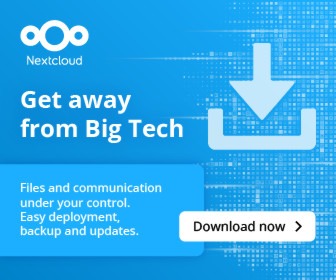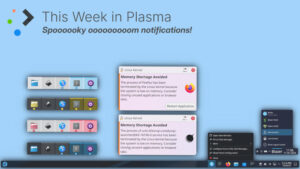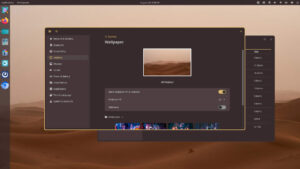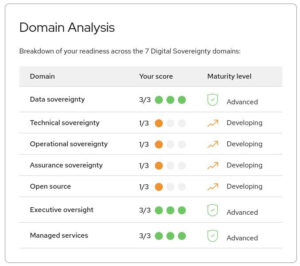Friday FOSS Week in Review
Texas stands up for email rights
Texas? Did you really say Texas? The state that leads the world in the number of executions–that Texas? Well, la-di-da, who would’ve ever thought the folks down there in the Lone Star State would be the first to stand up and protect our inboxes? Does this mean that the spirits of Ann Richards and Maury Maverick, Jr. are looking over the Texas legislators?
Unless you live in Texas, your legal email rights are covered only by the federal Electronic Communications Privacy Act, which was written back in 1986, but which has been amended several times, mostly around the Patriot Act and the FISA Amendments Act. It requires a warrant only for mail that’s been unopened for less than 180 days, after which only a subpoena is required. Opened email isn’t covered at all.
States are free to follow Texas’ lead and pass laws that give their citizens more rights than the federal law. However, state laws will only apply to local law enforcement within that state and will not supersede federal law in federal investigations–even in a state that’s passed tougher legislation.
The Texas privacy bill, which was signed into law by Governor Rick Perry last week, will require law enforcement agencies in Texas to obtain a warrant to read email. California is considering an Internet privacy bill that will go even further. In addition to email, the California bill, if passed, will require law enforcement in the Golden State to obtain a warrant before snooping through someone’s Facebook or Twitter messages or profile information.
As as you might expect, privacy advocates are pleased by this turn of events and hope it only signals more changes to come, as pointed-out by PCWorld on Sunday:
“‘The big impact is a signal to Congress that you can pass this type of law and the world will not fall apart and the sky will not fall,’ said Hanni Fakhoury, staff attorney for the Electronic Frontier Foundation.
“Voters are unlikely to retaliate at the polls if lawmakers pass such legislation, Fakhoury said, and ‘whether you are local law enforcement or federal law enforcement, you can still stop the bad guys.'”
There have been other recent wins on the electronic privacy front. In Maine a bill has passed the State Legislature and is expected to pass in the state’s Senate that would require a warrant before the police can obtain cell phone location information.
There have also been some setbacks, as PCWorld reports:
“However, law enforcement has had success in arguing against such laws. A bill similar to Maine’s died in the Montana Legislature in April and [another] was vetoed last year by California Gov. Jerry Brown, who was concerned that it would hamper criminal investigations.”
Is PRISM making you safer from terrorism?
Speaking of activities that require warrants or not, depending on what your definition of a warrant is…
Grant Gross reported on Tuesday on PCWorld that at the Computers, Freedom & Privacy Conference held on Tuesday and Wednesday at the Newseum in Washington, DC, not all security experts were in agreement that collection of massive amounts of data, NSA-style, is very useful:
“‘In knowing a lot about a lot of different people [the data collection] is great for that,’ said Mike German, a former Federal Bureau of Investigation special agent whose [sic] policy counsel for national security at the American Civil Liberties Union. ‘In actually finding the very few bad actors that are out there, not so good.’
“The mass collection of data from innocent people ‘won’t tell you how guilty people act,’ German added. The problem with catching terrorism suspects has never been the inability to collect information, but to analyze the ‘oceans’ of information collected, he said.
“Mass data collection is ‘like trying to look for needles by building bigger haystacks,’ added Wendy Grossman, a freelance technology writer who helped organize the conference.”
We found it especially interesting that even Timothy Edgar, who served the Obama White House as the first ever Director of Privacy and Civil Liberties, was critical of the administrations take on the NSA’s activities:
“Edgar criticized President Barack Obama’s administration for keeping the NSA programs secret. He also said it was ‘ridiculous’ for Obama to suggest that U.S. residents shouldn’t be concerned about privacy because the NSA is collecting phone metadata and not the content of phone calls. Information about who people call and when they call is sensitive, he said.
“But Edgar, now a visiting fellow at the Watson Institute for International Studies at Brown University, also said that Congress, the Foreign Intelligence Surveillance Court and internal auditors provide some oversight of the data collection programs, with more checks on data collection in place in the U.S. than in many other countries. Analysts can query the phone records database only if they see a connection to terrorism, he said.
“The U.S. has some safeguards that are ‘meaningful and substantive, although I’m sure many in this room … and maybe even me, if I think about it long enough, might think they’re not good enough,’ Edgar said.
We’ve thought about it a long, long time, Edgar. They’re not good enough.
Nook tablet enters bye-bye mode
A quarter century ago we were all wringing our hands because big box book retailers like Borders and Barnes & Noble were driving our local booksellers out of business. Well, the mom and pops are all gone, Borders is gone and it looks as if Barnes & Noble is on the way out–the big boxes being killed by the likes of Amazon.
This week, struggling Barnes & Noble announced they’ll quit making the Nook tablet, although they plan to continue to manufacture and market black and white eReaders such as the Nook Simple Touch. However, according to Reuters, they’re hoping to not have to go it alone:
“But it is looking for a partner to make its Nooks, acknowledging that competition is too fierce to fight alone.
“‘We want to move away from taking on all that risk ourselves,’ Barnes & Noble Chief Executive William Lynch told investors on a call. ‘It was very capital intensive to build our own tablets.’
“In the fiscal year ended April 27, Barnes & Noble lost $475 million on the Nook business and it repeatedly had to slash prices on the Nook tablets and accept returns from retailers unable to sell the devices.”
Barnes & Noble is not only struggling in the digital arena. Business at their traditional retail stores continues to fall, dropping 8.8% last year in same store sales in stores open at least 15 months. They plan to close up to 20 stores in the upcoming year.
Munich to hand out free GNU/Linux CDs
This is a story you’ve got to like.
It appears that Munich is going to be handing out CD copies of the “lightweight” Linux distribution Lubuntu to city residents who’re still running Windows XP? Why? They don’t want them to upgrade to Windows 7 or 8, which would probably necessitate them having to upgrade their hardware instead. In other words, they’re encouraging the use of Linux to slow down the move of old computers to the landfill.
Security issues might also be behind the move, according to Geek:
“The German government has shown before that it’s keen on making its citizens aware of the risks of running outdated software. You may have read an article or two over the past couple of years about German citizens being urged to ditch older versions of Internet Explorer for a more modern, more secure browser.”
Munich’s city government, of course, began migrating to GNU/Linux back in 2003.

Finally, we learned this week that Richard Stallman, pretty much the father of the free software movement and the GPL, is being added to the list of innovators at this years Internet Hall of Fame awards.
Linux User & Developer quotes Mr. Stallman as saying:
“Now that we have made the Internet work, the next task is to stop it from being a platform for massive surveillance, and make it work in a way that respects human rights, including privacy.”
We offer our heartfelt congratulations to RMS!
Well, that does it for another week. Until next Friday’s Week in Review, may the FOSS be with you…
















Nice article. Would you mind keeping partisan politics out of it? Neither party has a monopoly on trampling on liberty. The libertarian position is one of the few that is consistent in this regard.
Well, the nook tablets were priced well but they weren’t well designed. They were uncomfortable to hold, and didn’t offer Google Play (until recently) so they had pretty limited usefulness.
“The state that leads the world in the number of executions–that Texas? Well, la-di-da, who would’ve ever thought the folks down there in the Lone Star State would be the first to stand up and protect our inboxes?”
I don’t see the connection here? What has the volume of executions got to do with the state protecting law abiding citizens?
Russel, would you mind keeping your “libertarian” partisan politics out of it?
Nick, you’re right. There really isn’t a straight line between valuing privacy and valuing life, is there?
Nice quote from RMS.
rjb